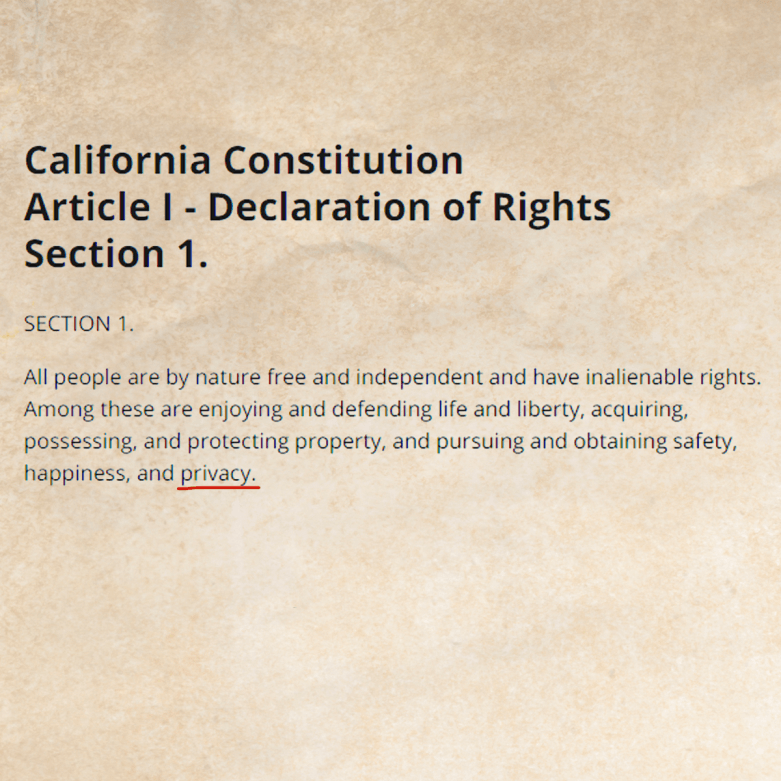The California Constitutional Right to Privacy Turns 50 - Our Longtime Work to Make Rights Real
Page Media

Life, liberty, and…privacy. These inalienable rights are enshrined at the top of the California Constitution. Fifty years ago, with support from the ACLU, a modern constitutional right to privacy was added to the state constitution through a prescient ballot measure. And for the last five decades, that right has helped to safeguard our homes, our families, our bodies, our thoughts, and our associations from invasion by government and corporate interests.
The United States Constitution had long provided protections for due process and unreasonable search and seizures by the government, but it was not crafted to stop encroachment by corporations, nor the full surveillance capabilities enabled by new technology. As the computer age eliminated the logistical difficulty of surveilling millions of people, it became clear that new and stronger privacy protections were critical.
After supporting its passage, the ACLU helped bring the Privacy Amendment to life. An early test was the 1975 landmark case, White v. Davis. We sued the Los Angeles Police Department for infiltrating UCLA courses and organizations to create dossiers on other students and professors, without any suspicion of illegal activity. The California Supreme Court wrote that the LAPD’s spying program “epitomizes the kind of governmental conduct which the new constitutional amendment condemns.” Other ACLU lawsuits built on this ruling by focusing on private actors. Among these was Sheehan v. San Francisco 49ers, an important suit to stop sports organizations from requiring indiscriminate body pat-downs to gain admittance to games.
California’s constitutional right to privacy has also been the north-star for our work on cuttingedge laws—from consumer protections that require businesses to provide people with privacy policies, data-breach notifications, and the right to know about and delete the information being collected on them—to anti-surveillance laws that require the government get a warrant to access our personal information and that protect against face surveillance and other dangerous technology.
Yet there is more work to be done. Privacy rights have become even more salient given recent U.S. Supreme Court decisions and the passage of antiabortion and anti-LGBTQ laws in many states.
In a digital world, our freedom depends on our ability to control how our personal information is collected and used. And thankfully, our work to enact, defend and promote California’s inalienable right to privacy over the past 50 years has given us the means to face today’s challenges.
For more information on the California Constitutional Right to Privacy, register for Berkeley Law's 2023 Fall Symposium on October 27: https://www.law.berkeley.edu/research/bclt/bcltevents/4th-annual-btlj-bclt-fall-symposium/.
